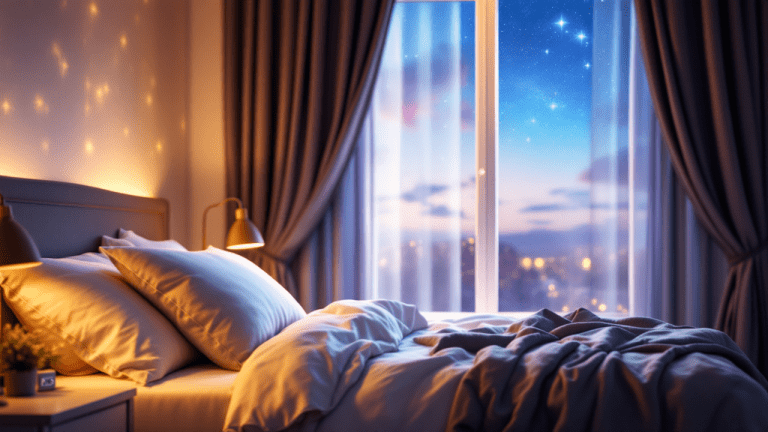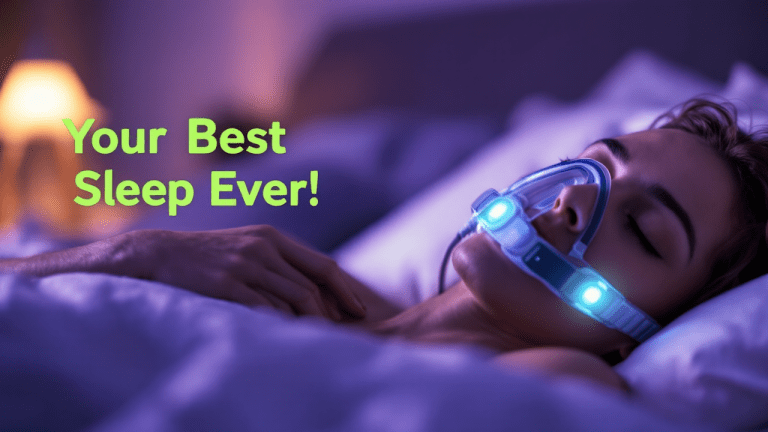Top 5 Better Sleep Ear Plugs: Block Out Noise and Wake Up Refreshed
Hey there, fellow insomniac or light sleeper! If you’ve ever tossed and turned because of a snoring partner, noisy neighbors, or the relentless hum of city traffic, you’re not alone. In our fast-paced world, getting a solid night’s sleep can feel like a luxury. That’s where better sleep ear plugs come in – those tiny, unassuming heroes that can transform your bedroom into a quiet sanctuary.
I’ve been there myself. Living in a bustling apartment building, I used to wake up multiple times a night from every little sound. It wasn’t until I discovered the magic of quality ear plugs that I started waking up feeling truly refreshed. But not all ear plugs are created equal. Some are cheap foam ones that fall out halfway through the night, while others are high-tech wonders designed specifically for sleep.

In this story, we’ll dive deep into everything you need to know about better sleep ear plugs. From the benefits that go beyond just blocking noise to the different types available, how to pick the right pair, top recommendations for 2025, usage tips, common pitfalls, and even alternatives if ear plugs aren’t your thing. By the end, you’ll be equipped to choose the perfect pair and say goodbye to sleepless nights. Let’s get into it!
The Surprising Benefits of Using Ear Plugs for Better Sleep
You might think ear plugs are just for concerts or construction sites, but when it comes to sleep, they pack a powerful punch. The primary perk? Noise reduction, of course. By muffling disruptive sounds like snoring, traffic, or even a ticking clock, ear plugs help you fall asleep faster and stay in those deep, restorative sleep stages longer.
But the benefits don’t stop there. Studies and experts agree that consistent use can lead to improved overall sleep quality, which means better mood, sharper focus, and even a boosted immune system the next day. For instance, if you’re dealing with a noisy environment, ear plugs can reduce stress levels by creating a calmer auditory space, allowing your brain to relax fully.
One often-overlooked advantage is protection from hearing damage. Chronic exposure to even moderate noise at night can harm your ears over time, but ear plugs act as a barrier. Plus, for shift workers or travelers, they make it easier to sleep during the day or in unfamiliar places. I’ve found that using them consistently has even helped me wake up without that groggy feeling – it’s like giving your ears a vacation while you rest.
Of course, it’s not all roses. Some people worry about missing alarms or emergencies, but modern ear plugs often come with adjustable noise reduction, so you can block out the bad without isolating yourself completely. Overall, if noise is sabotaging your shut-eye, incorporating better sleep ear plugs could be a game-changer for your health and well-being.
Exploring the Different Types of Ear Plugs for Sleep
When shopping for better sleep ear plugs, the variety can be overwhelming. Let’s break it down into the main categories to help you find what suits your needs.
- Foam Ear Plugs: These are the most common and affordable option. Made from soft, expandable foam, they compress to fit into your ear canal and expand for a snug seal. Brands like Mack’s Ultra Soft offer a high Noise Reduction Rating (NRR) of 33 dB, making them great for blocking loud snoring or traffic. They’re disposable, so no cleaning hassle, but they might not be ideal for side sleepers as they can protrude.
- Silicone or Putty Ear Plugs: Malleable and moldable, these form a custom seal over your ear opening rather than inserting deeply. They’re reusable, comfortable for side sleepers, and often recommended by experts for their gentleness. Think of them like clay – you shape them to fit perfectly. They’re excellent for moderate noise and won’t cause pressure buildup.
- Wax Ear Plugs: Similar to silicone but made from natural wax, these warm up with body heat to mold to your ear. They’re hypoallergenic and provide a good seal, but can be messy if not handled right.
- Custom-Molded Ear Plugs: For the ultimate fit, these are made from impressions of your ears by an audiologist. They’re pricier but offer superior comfort and noise reduction, especially for long-term use. Brands like Loop or Alpine offer semi-custom options with filters for varying noise levels.
- High-Tech Ear Plugs: These include electronic versions like QuietOn or SoundOff that use active noise cancellation or play soothing sounds. They’re like mini earbuds for sleep, perfect if you want more than just blocking.
Each type has its pros and cons – foam for budget, silicone for comfort, custom for precision. Consider your sleeping position, noise level, and sensitivity when choosing.
How to Choose the Right Ear Plugs for Better Sleep
Picking the best ear plugs isn’t just about grabbing the first pack off the shelf. Here’s a step-by-step guide to make an informed decision.
First, check the NRR – that’s the Noise Reduction Rating. For sleeping, aim for 25-33 dB to block common disturbances without total isolation. Higher isn’t always better; you still want to hear your alarm.
Comfort is king. If you’re a side sleeper, opt for low-profile designs like silicone putty or those without stems. Test for fit – they should seal without pain.
Material matters too. Hypoallergenic options like silicone or wax are best if you have sensitive skin. Reusable vs. disposable? Reusables save money long-term but require cleaning.
Consider features: Some have filters for selective hearing, like Alpine’s SleepDeep with ATS material for comfort. If you travel, look for portable cases.
Finally, read reviews and try samples. What works for one person might not for another. Start with a multi-pack to experiment.

Top Recommendations for Better Sleep Ear Plugs in 2025
Based on recent reviews and expert picks, here are some standout options for 2025. I’ve focused on highly rated ones from reliable sources.
- Mack’s Ultra Soft Foam Earplugs: Top pick overall with 33 dB NRR. Soft, comfortable, and affordable – perfect for beginners.
- Alpine SleepDeep: Oval-shaped for side sleepers, with 27 dB reduction and gel tips for extra comfort.
- Loop Dream Earplugs: Stylish, reusable with 27 dB filtering. Great for light sleepers who want something modern.
- Flents Foam Ear Plugs: 33 dB NRR, budget-friendly, and effective for travel or daily use.
- QuietOn 4 Active Noise Cancelling Earbuds: High-tech choice for ultimate quiet, with battery life for all-night use.
These picks are based on comfort, effectiveness, and user feedback. Prices range from $10 for foams to $200+ for tech ones.
| Product | NRR | Type | Best For | Price Range |
|---|---|---|---|---|
| Mack’s Ultra Soft | 33 dB | Foam | Budget, High Noise | $10-15 |
| Alpine SleepDeep | 27 dB | Silicone | Side Sleepers | $20-30 |
| Loop Dream | 27 dB | Reusable | Stylish Use | $40-50 |
| Flents Foam | 33 dB | Foam | Travel | $8-12 |
| QuietOn 4 | Variable | Electronic | Tech Lovers | $150+ |
Tips for Using Ear Plugs Effectively
To get the most out of your better sleep ear plugs, follow these pro tips:
- Insert Properly: Roll foam plugs thin, pull your ear up, and hold until they expand.
- Clean Regularly: For reusables, wash with mild soap to prevent infections.
- Combine with Other Aids: Use with an eye mask or white noise for extra peace.
- Start Slow: Wear them for short naps first to adjust.
- Replace Often: Disposable ones every few uses to maintain hygiene.
These habits will maximize noise blocking and comfort.
Common Mistakes to Avoid with Sleep Ear Plugs
Don’t sabotage your sleep! Here are pitfalls to dodge:
- Inserting Too Deep: This can cause pain or wax buildup.
- Not Cleaning Them: Leads to bacteria and infections.
- Using Dirty Hands: Always wash before handling.
- Ignoring Fit: Wrong size means poor sealing and discomfort.
- Over-Reliance: Address underlying noise issues if possible.
Avoid these for safe, effective use.
Alternatives to Ear Plugs for Better Sleep
If ear plugs don’t appeal, try these options:
- White Noise Machines: Devices like the Easysleep play soothing sounds to mask noise.
- Sleep Headphones: Wireless buds or headbands for audio without plugs.
- Ear Muffs: Over-ear options like Hibermate for total coverage.
- Noise-Canceling Apps: On your phone for ambient sounds.
- Room Modifications: Soundproof curtains or fans.
These can complement or replace ear plugs based on preference.
Conclusion: Sweet Dreams Await with Better Sleep Ear Plugs
Wrapping up, better sleep ear plugs are a simple yet effective tool for conquering noisy nights. Whether you go for foam, silicone, or high-tech, the key is finding what fits your lifestyle. Give them a try – your well-rested self will thank you. Sweet dreams!





